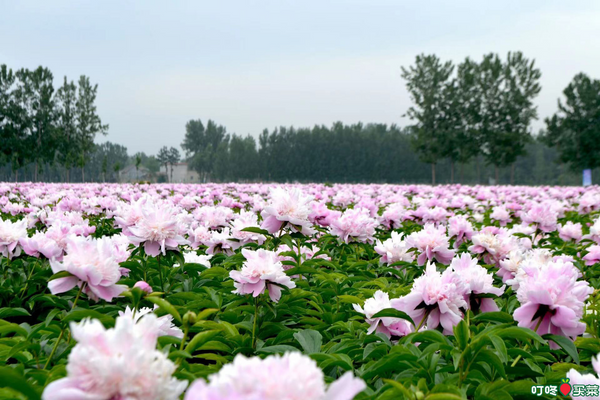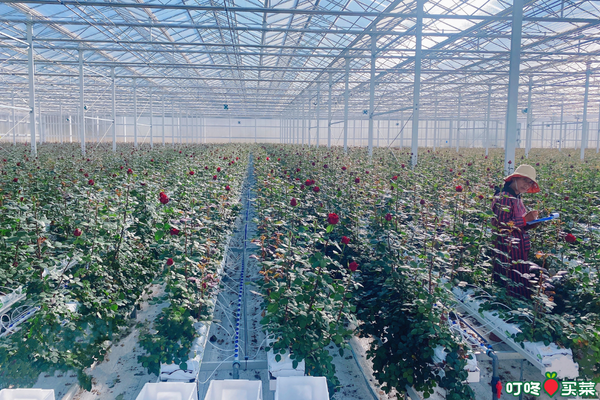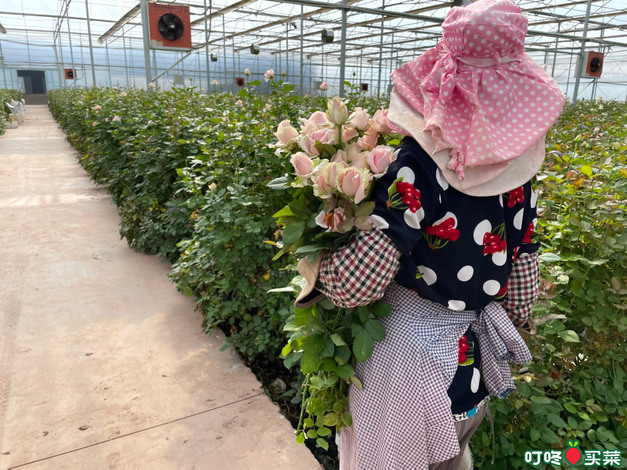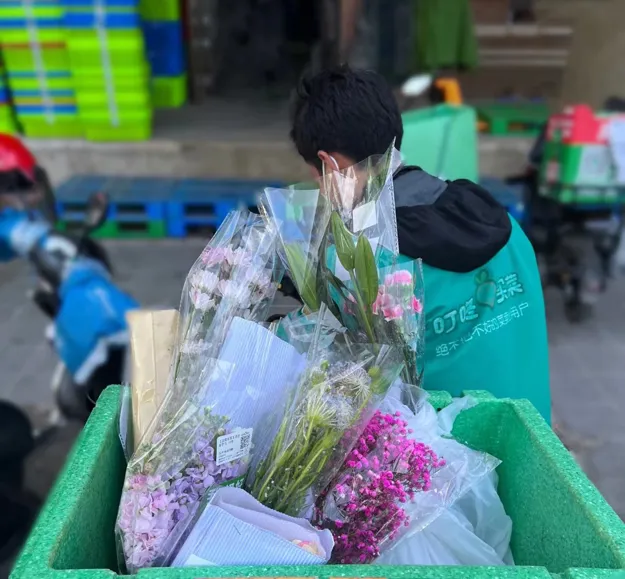Fresh flowers are turning into an important product for e-commerce traders in fresh produce. Some e-commerce giants, including Dingdong, Hema Fresh, and Miss Fresh, all offer fresh flowers and potted plants at various prices. Yu Shui, Director for Product Development and spokesperson for fresh flower products at Dingdong, "Chinese fresh flower consumption changes every day. Before 2015, fresh flowers were primarily considered gifts, and Chinese consumers mainly bought bouquets in flower shops. However, economic conditions and consumer concepts have changed since then. Fresh flowers have become a daily product that is available to a larger audience."

Dingdong began selling fresh flowers online in November 2020. They established a scene for fresh flowers as daily household purchases. "Dingdong has major warehouses and distribution networks in large cities throughout China, which made expanding into the fresh flower market easier and helped keep the cost of distribution low. Customers do not need to pay additional costs for ordering fresh flowers. They can simply add fresh flowers to their order when they are online ordering vegetables. In this way, fresh flowers are a daily household purchase, just like vegetables. Ordering is easy and convenient. We think that fresh flowers at home represent a market with huge potential."

Dingdong mainly sells fresh flowers, but they also have an assortment of potted plants. "Roses are among the most popular products we have. We purchase directly from plantations to guarantee stable product quality. Yunnan is a major fresh flower production area, and we transport our fresh flowers in refrigerated transport to make sure that the product quality is optimal. Of course, that does add to the cost price of transport. That is why we invested in foldable flower crates that we can reuse. That reduces waste during transport and limits environmental pollution by eliminating single-use cardboard boxes. In addition, we have invited third-party specialists in fresh-keeping solutions to implement proper post-harvest fresh-keeping solutions. We are also working together with China Agricultural University to advance research into fresh-keeping technologies.
Compared to fresh flower subscriptions, the online sales are more flexible. And the market prices continuously fluctuate. They change every day, Yu Shui explains. With monthly payments for fresh flowers, the prices are fixed. Traders have to change their flowers based on changes in the flower market, and clients sometimes receive flowers that they do not particularly enjoy. On our e-commerce platform, consumers can select flower varieties based on their own preferences. And they will be delivered to their home in as little as 29 minutes."

According to Yu Shui, China has a growing number of aeroponic flower plantations, and the level of product quality rises every day. "These growers supply our needs very well. However, China also still has many small-scale horticulturalists who apply traditional methods to grow flowers. They have more difficulty supplying the quantity and quality we require. We need at least ten thousand flowers per day from a single supplier. That is why we work with third parties who gather flowers from small-scale horticulturalists to help meet our demand. We also import high-quality varieties from abroad, such as the Lily of the Incas from Columbia. These sell very well in the Chinese market. We hope that a growing number of high-quality import varieties will find their way to the Chinese market. Together we can raise standards in the Chinese flower market."

"One direction of development is guided plantation. Dingdong currently works with an experimental horticulturalist in Jinshan, Shanghai, to grow sunflowers based on consumer demand. The price of our sunflowers is much lower than the market price. Horticulturalists in Yunnan are also studying many-headed roses and 'Teddy Bear' sunflowers."
There are regional variations in flower preferences. "Consumers in one city like different flowers than consumers in the next city. Consumers in Beijing prefer large, brightly-colored flowers, while consumers in Shanghai and Hangzhou like refined, light-colored flower bouquets. When the lockdown in Shanghai finished in June, the sales of light-colored, green potted plants suddenly increased. In addition to daily sales of fresh flowers, we also promote more elaborate flower bouquets during holidays. This year during the Dragon Boat Festival [3 June 2022], we sold bouquets of wormwood and calamus. They were almost immediately sold out. We sold more than 80,000 bouquets. They were very popular in the Chinese market."
"Dingdong employees work hard to select the best flower varieties for the Chinese market. We have an investigative team to research consumer preferences and market trends. We also have teams that visit production areas to inspect the flowers there. We study every aspect of our business from the perspective of our customers. We hope to bring even more beauty to our customers' homes.
